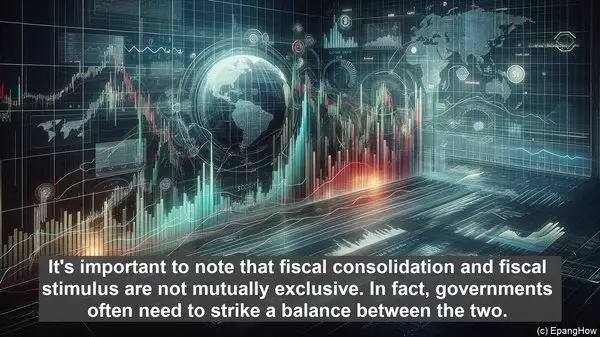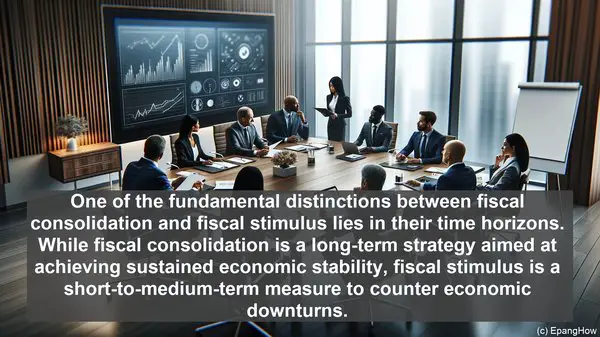Introduction: The Role of Government in Economic Management
Hello everyone! Welcome to our article on the difference between fiscal consolidation and fiscal stimulus. In any economy, the government plays a vital role in managing various aspects, including fiscal policies. Today, we’ll delve into two significant approaches that governments often adopt in different economic scenarios: fiscal consolidation and fiscal stimulus.
Fiscal Consolidation: A Prudent Approach to Economic Stability
Fiscal consolidation primarily focuses on reducing government deficits and stabilizing the economy in the long run. This approach is typically employed when an economy faces high debt levels or persistent budget deficits. Governments achieve fiscal consolidation through measures like cutting public spending, increasing taxes, or a combination of both. The underlying idea is to bring the government’s income and expenditure in balance, thereby reducing the need for borrowing and ensuring sustainable economic growth.
Fiscal Stimulus: Boosting Economic Activity in Downturns
On the other hand, fiscal stimulus is all about injecting additional spending into the economy during periods of economic downturn. The objective here is to stimulate demand, encourage investment, and create jobs. Governments achieve this by increasing public expenditure, reducing taxes, or a combination of both. The idea is to create a multiplier effect, where every dollar spent by the government generates more economic activity, eventually leading to a recovery.
Key Differences: Time Horizon and Economic Conditions
One of the fundamental distinctions between fiscal consolidation and fiscal stimulus lies in their time horizons. While fiscal consolidation is a long-term strategy aimed at achieving sustained economic stability, fiscal stimulus is a short-to-medium-term measure to counter economic downturns. Moreover, the economic conditions also dictate the choice between the two. In times of economic expansion, fiscal consolidation may be preferred to prevent overheating, while during recessions, fiscal stimulus becomes crucial to revive the economy.

Balancing Act: The Challenges of Implementing Both
It’s important to note that fiscal consolidation and fiscal stimulus are not mutually exclusive. In fact, governments often need to strike a balance between the two. While fiscal consolidation ensures long-term stability, excessive austerity measures can hamper growth. Similarly, while fiscal stimulus can provide a much-needed boost, uncontrolled spending can lead to inflationary pressures. Achieving the right balance requires careful analysis of the economic situation and a nuanced approach.

